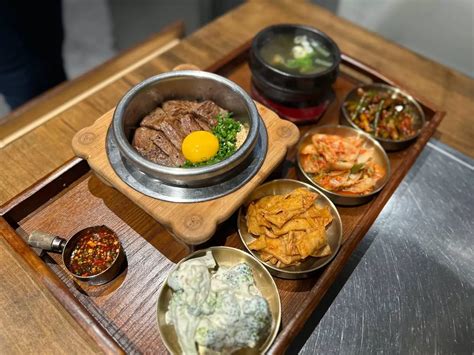Introduction: The Fuel Dilemma

“Should I eat before or after a workout?” – A question that plagues fitness enthusiasts, leaving them in a nutritional conundrum. Understanding the timing and contents of your meals can optimize your workouts and enhance your fitness journey. Join us as we delve into the science behind pre- and post-workout nutrition, empowering you to make informed choices and maximize your results.
Chapter 1: Pre-Workout Nutrition: Fueling Your Engine
Pre-workout nutrition aims to provide your body with the necessary energy to power through your workouts and support muscle growth. According to the American Council on Exercise (ACE), consuming a meal 2-3 hours before exercise can optimize performance.
1.1 Ideal Pre-Workout Meal Composition
- Carbohydrates: Provide sustained energy to fuel your muscles. Aim for complex carbs like oatmeal, brown rice, or whole-wheat toast.
- Protein: Helps build and repair muscle tissue. Include lean sources like chicken breast, tofu, or eggs.
- Healthy Fats: Promote satiety and support hormone production. Choose sources like nuts, seeds, or avocado.
- Hydration: Drink plenty of water before and during your workout to prevent dehydration.
Chapter 2: Post-Workout Nutrition: Recovery and Repair
Post-workout nutrition focuses on replenishing energy stores, repairing muscle tissue, and promoting recovery. Your goal is to refuel your body within 30-60 minutes after your workout.
2.1 Post-Workout Meal Composition
- Protein: Consuming 15-25 grams of high-quality protein is essential for muscle repair and growth. Eggs, whey protein, or Greek yogurt are excellent choices.
- Carbohydrates: Replenish glycogen stores that were depleted during your workout. Choose whole-grain bread, pasta, or fruit.
- Electrolytes: Restore lost electrolytes through sports drinks or coconut water.
- Antioxidants: Help reduce inflammation and muscle soreness. Include fruits and vegetables that are rich in antioxidants, such as blueberries or spinach.
Chapter 3: Tailoring Nutrition to Your Workout Intensity
The optimal timing and composition of your pre- and post-workout meals depend on the intensity and duration of your workout.
3.1 Low-Intensity Exercise (30-60 minutes)
- Pre-workout: A light snack or meal 1-2 hours before exercise.
- Post-workout: Refuel within 30-60 minutes with a protein shake and fruit.
3.2 Moderate-Intensity Exercise (60-90 minutes)
- Pre-workout: A larger meal 2-3 hours before exercise.
- Post-workout: A full meal within 60 minutes, consisting of protein, carbohydrates, and healthy fats.
3.3 High-Intensity Exercise (90+ minutes)
- Pre-workout: A high-carb meal 3-4 hours before exercise.
- Post-workout: Refuel immediately with a sports drink and a meal within 60 minutes.
Chapter 4: Special Considerations
4.1 Intermittent Fasting
If you practice intermittent fasting, you may need to adjust your pre- and post-workout nutrition strategies. Consult with a registered dietitian or healthcare professional for guidance.
4.2 Morning Workouts
For morning workouts, aim to have a small snack or meal before exercising. If you prefer to train fasted, ensure you stay well-hydrated and consider consuming a sports drink during your workout.
Hot Search Title: The Ultimate Pre- and Post-Workout Nutrition Guide for Optimal Fitness Results 2025
Chapter 5: FAQs
5.1 Is it okay to workout on an empty stomach?
For low-intensity workouts, working out fasted may be acceptable. However, for moderate- to high-intensity exercise, it’s recommended to have a pre-workout meal to provide energy.
5.2 What should I eat if I’m in a hurry?
Quick and convenient pre-workout options include bananas, energy bars, or sports drinks. Post-workout, consider a protein shake or a meal replacement smoothie.
5.3 How much water should I drink?
Consume water regularly throughout the day, especially before and during your workouts. Aim for 8-10 glasses of water per day.
5.4 Can I eat anything I want after a workout?
While it’s important to refuel after a workout, it’s still recommended to make healthy choices. Opt for nutrient-rich foods that will support your recovery, rather than indulge in junk food.
5.5 I feel nauseous after eating before a workout. What can I do?
Try consuming smaller portions of easily digestible foods, such as a banana or a sports drink. You may also want to experiment with different timing, eating your pre-workout meal further away from your workout.
5.6 How can I determine my optimal post-workout protein intake?
A general recommendation is to consume 15-25 grams of protein after a workout. Individual needs may vary based on body weight, exercise intensity, and training goals. Consult with a registered dietitian for personalized advice.
5.7 What are some healthy post-workout snacks?
- Greek yogurt with berries
- Hard-boiled eggs with whole-wheat toast
- Trail mix with nuts, seeds, and dried fruit
- Cottage cheese with pineapple
5.8 I’m vegan. How can I ensure I’m getting enough protein after a workout?
Plant-based protein sources such as tofu, tempeh, beans, lentils, and quinoa can provide adequate protein for post-workout recovery. Consider supplementing with protein powder if necessary.
Conclusion: Empowering Your Fitness Journey
By understanding the principles of pre- and post-workout nutrition, you can optimize your workouts and achieve your fitness goals effectively. Tailor your meals to suit your workout intensity and dietary preferences, and remember to stay hydrated throughout the process. With the knowledge provided in this comprehensive guide, you can fuel your body, power through your workouts, and enjoy the transformative benefits of a healthy lifestyle.
















